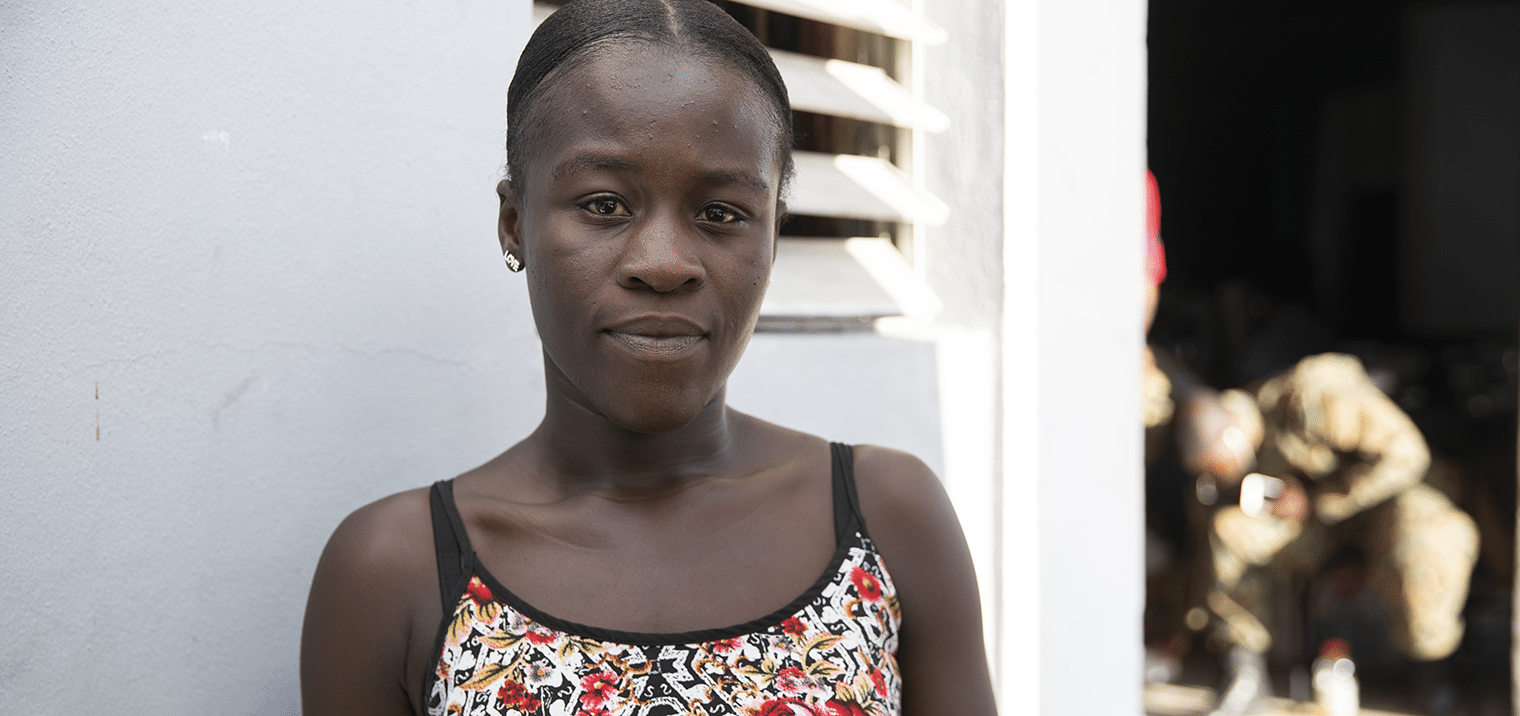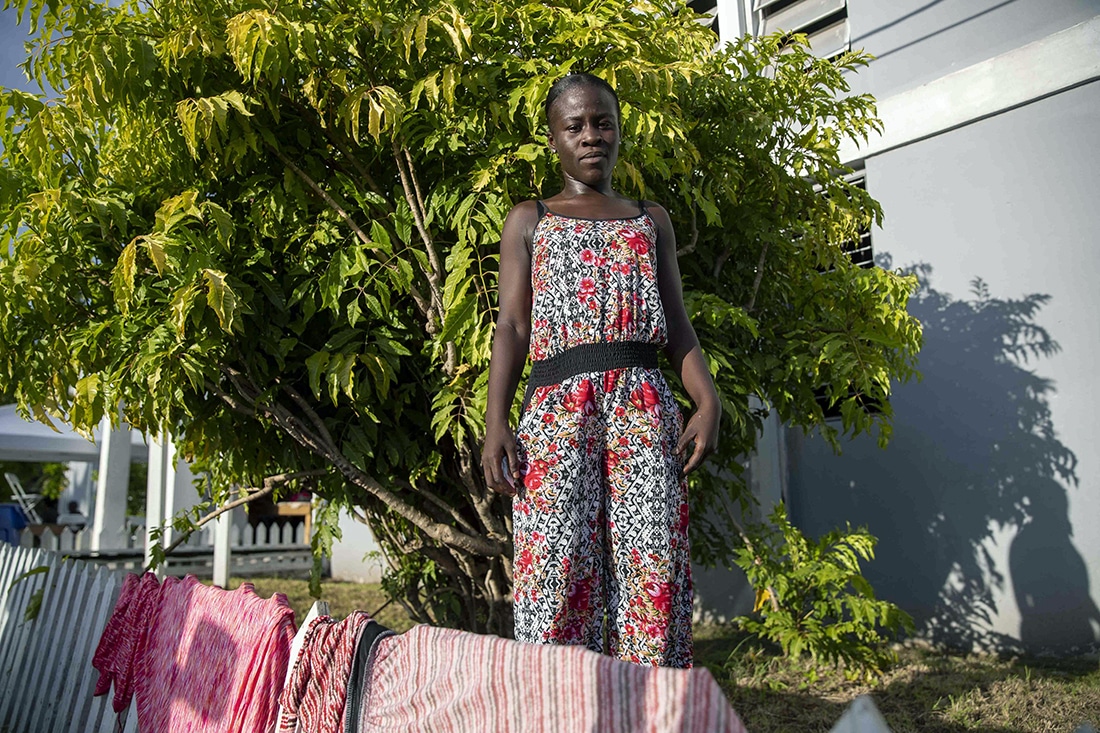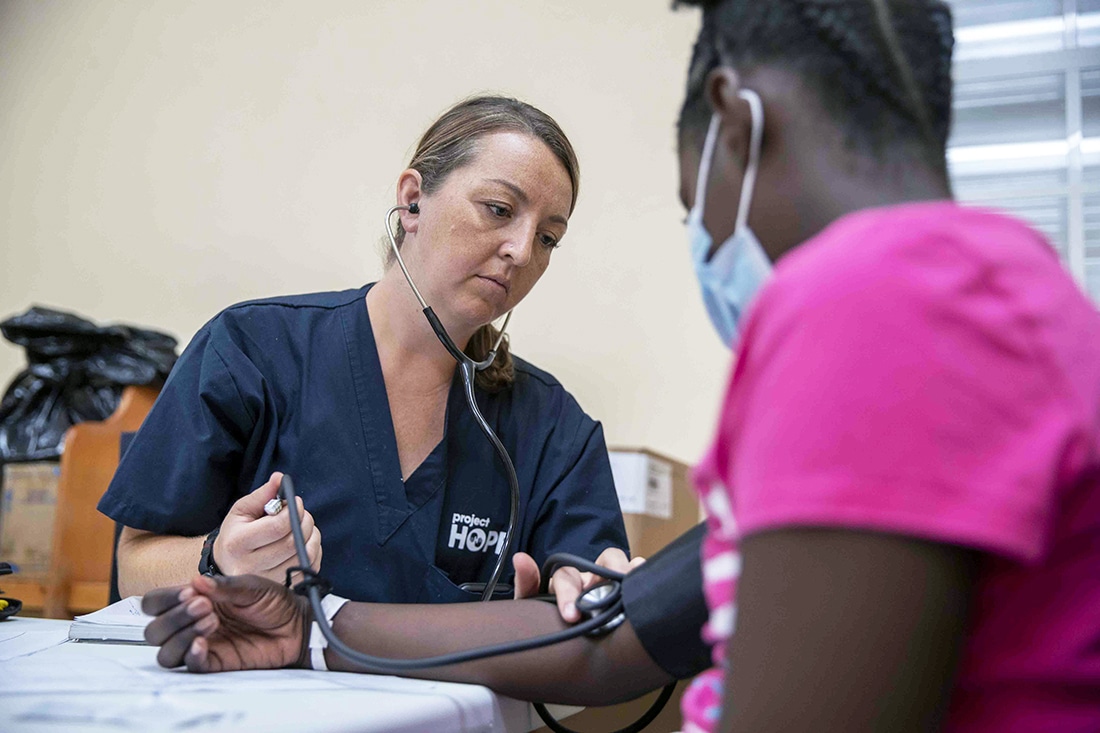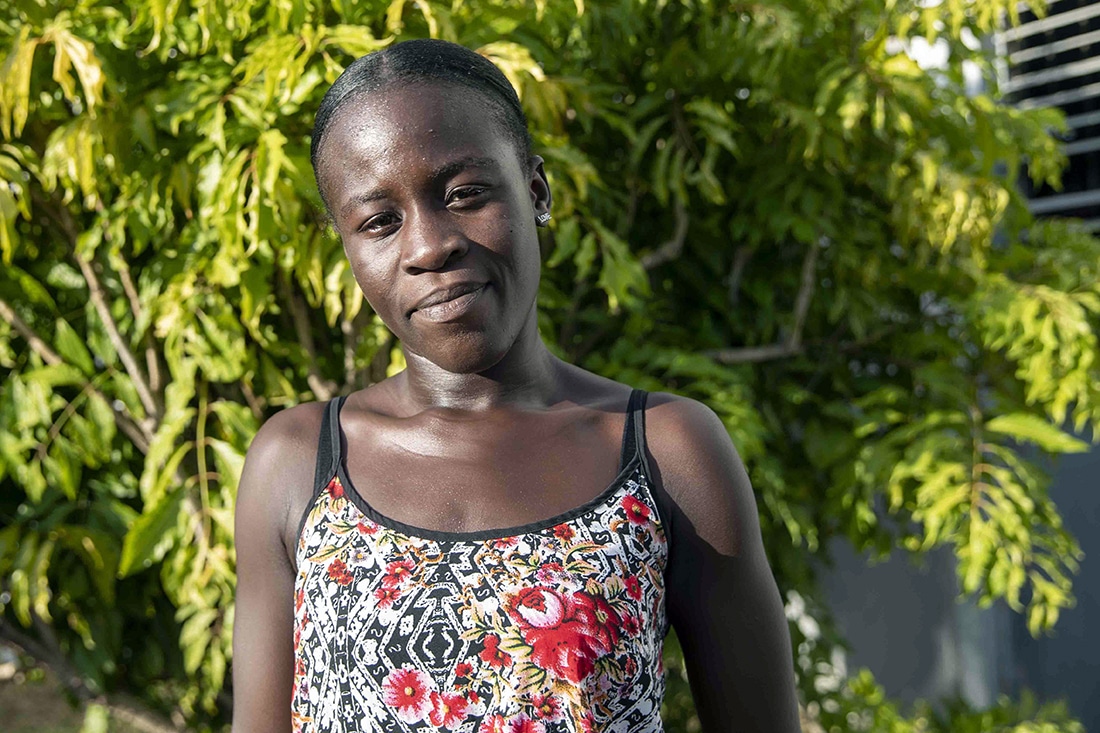
For Dorian’s Survivors, the Devastation Continues
Two weeks after Hurricane Dorian devastated Abaco and Grand Bahama Island, Project HOPE is helping survivors cope with its aftermath.
At some point in the 48 hours Hurricane Dorian ripped apart her home, Marie Vincent looked around and realized the waters were not going to stop coming.
Marie, 23, is one of many people of Haitian descent who live on Great Abaco Island, which on September 1 bore the wrath of one of the strongest Atlantic hurricanes ever recorded. Before, Abaco was best known as a quiet island community of fishermen, laborers and boaters. Now it is known as a place changed by devastation. For two days, Hurricane Dorian punished Abaco and Grand Bahama Island with 200-mile-per-hour winds and devastating rains. Hour by hour, board by board, entire swaths of the islands were erased.
While some on Abaco evacuated, large numbers of people stayed behind to ride out the storm in homes, churches, schools and government buildings. Among them were Marie, who is pregnant, and her family. But as Dorian slowed to an excruciating crawl, a 20-foot wall of storm surge began pushing across the island, leaving the thousands who stayed behind with a harrowing decision.
In the days since Dorian hit, many people on Abaco have described this moment — a point of no return when they realized that, if they were going to have a chance to survive, they had to leave where they were sheltering. Walking into the winds of an EF-5 tornado was a better fate than sitting in a flooding room.
And so, like countless others across Great Abaco Island, Marie Vincent made an impossible choice. She strapped her 3-year-old on her back and stepped into the rising waters.

‘I don’t feel real’
Meanwhile, on another part of Abaco, 11-year-old Arianna sat beneath a crumbling roof and contemplated the same choice. Like Marie, she and her family left shelter behind and headed into the storm. As they made a break for a neighbor’s house, Arianna saw her cousin get hit in the head with a flying tire and then felt a piece of debris slam into her back. They all made it, but soon the roof began to give way there as well. All they could do, she says, was huddle in the corner, “screaming and praying” for the winds to calm. When they finally did, her family drove as fast as they could to a government building.
Today they are in Nassau, facing the same uncertain future shared by thousands of evacuees from Abaco and Grand Bahama. There is no home, no school, no church to return to. There are no possessions to collect or documents to gather. Everything they knew of their life before September 1 has been erased.
“Sometimes I just feel like I’m dreaming. I don’t feel real at all.”

Marie, also in Nassau, shares an even more profound sense of loss. Her mother and father did not make it to safety. With her older brother away at university, the burden of providing for her children and younger siblings — as well as breaking the news to them — now falls to her. Her list of needs is exhausting: She needs a new place to live, which means she needs a job. But she can’t get a job without her IDs, which were destroyed.
Her biggest fear, she says, is not being able to move on. She worries she will spend the rest of her life wondering why this happened. Nevertheless, she must find a way to lead what’s left of her family while simultaneously wading through her own grief: In March, she also lost a young daughter.
“Never mind my IDs, never mind my passport, I would do anything just to have my mom back here with me.”
A new wave of need
In the immediate aftermath of a disaster, says Tom Cotter, the hardest thing to find is information. As Project HOPE’s director of emergency response, Cotter has led HOPE’s emergency response team since it arrived in Nassau just three days after the storm.
“Figuring out what is going on is usually job number one when you deploy,” he says. That meant traveling to Abaco as quickly as possible to assess the fastest way to help. Immediately, Project HOPE began working to distribute vital medical supplies such as gauze, bandages and diapers to a health clinic in Marsh Harbour. But as thousands of people evacuated Abaco and Grand Bahama Island for Nassau, it became clear that there would be a second wave of support needed for people like Marie who had been left with nothing.
Read more about the level of destruction Tom witnessed in Abaco when he arrived.
It’s Thursday, and 11-year-old Arianna has felt sick for days. In the shelter where she and her family are staying, Project HOPE has set up a wellness station that includes a triage and exam area where HOPE is assisting in the treatment of patients for medical issues like upper respiratory infection, urinary tract infection, chest pain, hyperglycemia and asthma.
The wellness stations are an important part of meeting evacuees’ urgent needs, along with the 2,000 hygiene kits Project HOPE has delivered and the team of additional doctors and nurses scheduled to arrive this week. But as the storm gets further in its survivors’ memories, Cotter says, the help they’ll need will shift into long-term support.
“At some point, people are going to want to go back home — maybe not all of them, but certainly some will,” he says. “We have to have systems in place to support them through reconstruction.
“It’s difficult to look past the next day or two, but we need to start taking a multi-week approach to this, which we will. Project HOPE is not only meeting immediate needs, but we’re looking to restore the health care infrastructure in the affected areas.”
Learn more about what Project HOPE is doing to help survivors of Hurricane Dorian in the Bahamas.
That future is on Marie Vincent’s mind, even as so much of her present is unknown. It will take time to heal her family, her community and the island they still call home. Until then, all she has are questions, and a family now depending on her to find the answers.
“I hope I can get a job so I can move out and I can rent someplace and just move on,” she says. “But my biggest fear right now is not being able to move on and having a grudge. Because sometimes you ask, ‘God, why us? Why Abaco?’”
“Abaco is a great place,” she says. “I lost a lot of my kind.”

How you can help
Make a lifesaving gift to support our work now and for the future at projecthope.org/donate.
Are you a health-care or other professional who would like to learn more about volunteering abroad with Project HOPE? Learn more about our volunteer program and join our volunteer roster.
Stay up-to-date on this story and our lifesaving work around the world by following us on Facebook, Instagram, LinkedIn and Twitter, and help spread the word by sharing stories that move and inspire you.